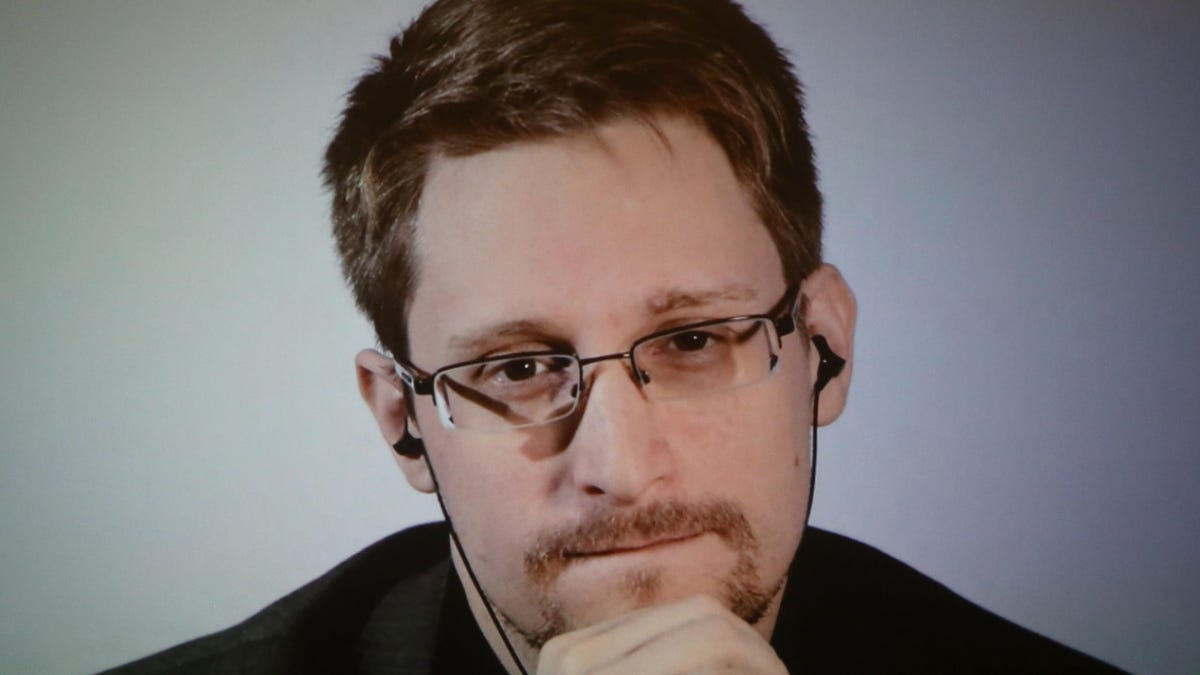Snowden: Jury should decide whether NSA leaks were 'right or wrong'
The former NSA contractor reiterates his reasons for not returning to the US.

Edward Snowden speaks remotely at the WIRED25 Festival in October 2018. On Monday he reiterated his request to make an argument in court that his leaks benefited the public.
Edward Snowden doesn't argue about whether he broke the law by leaking the details of top-secret NSA surveillance programs to journalists in 2013. Instead, he says there should be an exception for whistle-blowers who release information for the benefit of the public.
Snowden reiterated this stance in an interview with CBS News Monday. (Note: CBS News and CNET are both owned by parent company CBS.) The former federal contractor was charged in 2013 with breaking the Espionage Act, and has lived in Russia ever since. Snowden told CBS News that he was making a connection to Latin America in Moscow when his passport was canceled, leaving him stranded in Russia. A return to the US would force him to face a trial that he says would be improperly closed off from the public and wouldn't let the jury consider his motivations.
"This is the bottom line that any American should require," Snowden said. "We don't want people thrown in prison without the jury being able to decide that what they did was right or wrong."
The interview comes as Snowden prepares to release his memoir, Permanent Record, on Tuesday. Snowden's disclosures revealed several surveillance tools used by the NSA, including the dragnet collection of phone records and the mass collection of online communications through the Upstream and PRISM programs.
The NSA didn't immediately respond to a request for comment.
The leaks prompted a public debate about previously covert surveillance tools that demonstrated the US government's deep reach into global internet infrastructure. The phone records collection was curtailed in 2015 and reportedly shuttered earlier this year, though the Trump administration is reportedly hoping to extend the authority to carry out the program instead of letting it expire in December. PRISM and Upstream were renewed in January 2018.
The disclosures also helped spur a shift in the tech industry toward publicly defending users' rights to privacy, as companies fought back against the broad rights of the federal government to secretly demand user data and against efforts to break through encryption tools that protect user data on phones and other devices.
Snowden told CBS News that Russian agents immediately sought to get his cooperation in sharing information about US intelligence practices, but that he declined.
"I said 'look, that's not how this is going to be. That is not how this is going to work. I do not have any information,'" Snowden said. He added that he had destroyed any information he'd had before he arrived in Russia.
He also told CBS News he's not asking for a pass or pardon. However, at the same time as Snowden's story was dramatized in a Hollywood film in 2016, three rights organizations including the ACLU, which represents Snowden, did ask President Barack Obama to pardon him. Snowden has also made the case that the presidential pardon would be appropriate in his circumstances. On the "Stand with Snowden" website, the organizations said that the campaign wasn't meant to go beyond Obama's presidency.
"While Obama did not pardon Snowden," the website says, "the pardon campaign succeeded in galvanizing a community of more than 1 million people who believe Snowden deserves more than a life of exile or years in prison."
Correction, 3:27 p.m.: Notes that the release of the film about Snowden and the launch of the Pardon Snowden campaign were in 2016.

